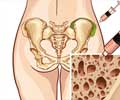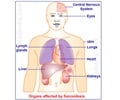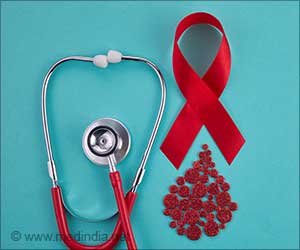Cytomegalovirus (CMV) infections that occur after transplantation can be prevented by using an effective antiviral drug, letermovir.
Highlights
- Cytomegalovirus infections is one of the common viral infection that occurs after transplantation
- A new antiviral drug called letermovir may help to treat cytomegalovirus infections.
- The drug was found to be effective with minimal side effects when compared to other drugs.
The results of the clinical trial were presented at the 2017 Bone Marrow Transplant Tandem Meetings of the American Society for Blood and Marrow Transplantation (ASBMT) and the Center for International Blood and Marrow Transplant Research (CIBMTR) in Orlando, Florida.
Efficacy of Letermovir Drug in Active CMV Infections
The effectiveness of the Letermovir drug was compared to a placebo in preventing the CMV infections after transplantation by conducting a study on 567 adult patients in about 67 centers in 20 countries.
The patients who had a transplant for the treatment of blood-related cancers were found to have CMV infection. After completing 14 weeks, 61 % patients who received a placebo had developed a CMV infection which required treatment or may discontinue the trial. However, only 38% of the patients treated with letermovir may have a risk of developing the CMV infection or who did not complete the trial.
Benefits of Letermovir Drug
When compared to other drugs that were used for the treatment of CMV infections letermovir drug was found to tolerate the side effects, which may even include nausea, vomiting and some swelling.
Francisco Marty, MD, an infectious disease specialist, Dana-Farbe and BWH, said, "For the first time, we seem to have a drug that is a true, safe, effective, and preventive for CMV infection in stem cell transplant patients." "Letermovir will allow many patients to avoid infection, usually with no or mild side effects, and seems to provide a survival benefit in the first six months post-transplant."
Most of the patients who received chemotherapy may wipe out or reduce bone marrow where the blood cells are formed, followed by an infusion of donor stem cells that may rebuild their blood supply which may reconstitute the immune system.
Even though the transplanting techniques are safe, there is still a chance of reactivation of CMV infection.
Cytomegalovirus Infections (CMV)
Cytomegalovirus (CMV ) infection is a type of herpes virus and is one of the most common viral infections in the world.
More than 50% of the people are infected with CMV infections in the United States before adulthood. However, the rate was found to be significantly higher in other parts of the world.
According to the Centers for Disease Control and Prevention (CDC), most of the people are infected with CMV by the age of 40.
During the early years of bone-marrow transplant therapy, around 60-70% of the patients may acquire CMV infections.
20-30% people may contract CMV pneumonia, and 80% were found to die due to the disease.
Symptoms of CMV Infections
- Fever
- Fatigue
- Swollen glands
- Sore throat
The drug mainly acts by blocking a process through which the CMV is ‘packaged’ inside the infected cells. This process may not occur in humans, therefore, the drug may help to give rise to only mild side effects.
Marty, said, "The goal was to suppress the virus before it has a chance to become active."
"The results of this trial offer encouragement that letermovir can offer a new strategy for donor stem cell transplant patients in preventing the emergence of CMV infection following transplant."
References
- About CMV - (https://www.cdc.gov/cmv/overview.html)
Source-Medindia












